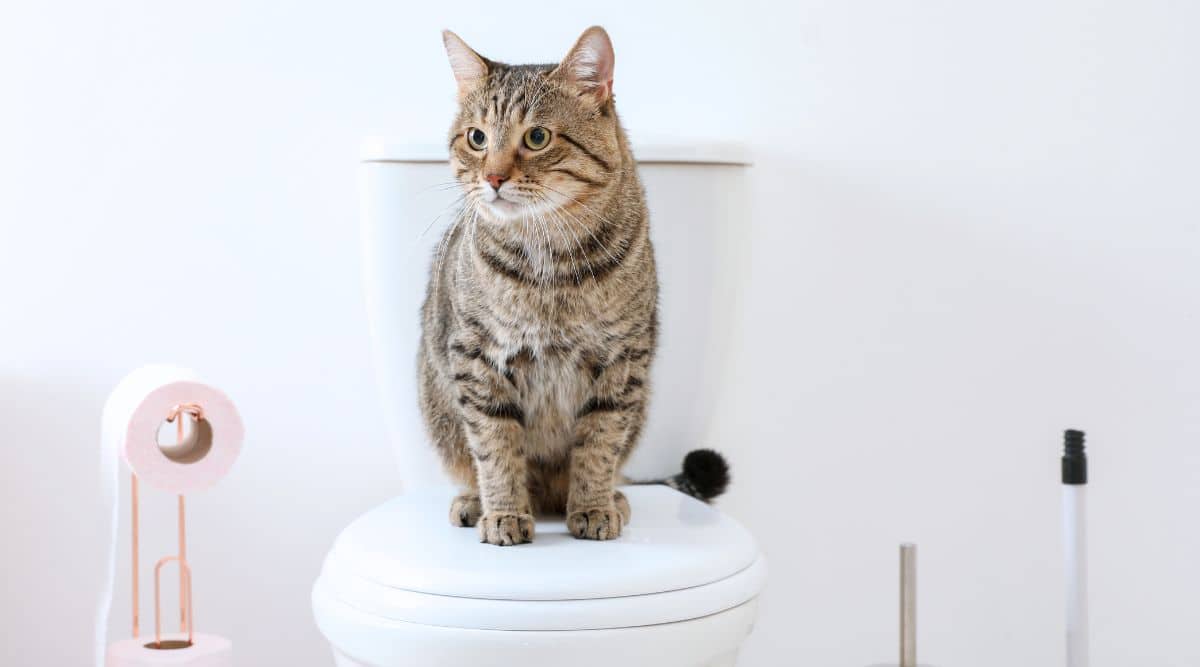Reasons You Should Never Flush Cat Poop Down Your Toilet - Important Information
Reasons You Should Never Flush Cat Poop Down Your Toilet - Important Information
Blog Article
Were you searching for guidance concerning Don’t flush cat feces down the toilet?

Intro
As feline proprietors, it's vital to bear in mind just how we get rid of our feline good friends' waste. While it may seem convenient to purge pet cat poop down the commode, this technique can have damaging repercussions for both the atmosphere and human health and wellness.
Environmental Impact
Flushing cat poop introduces damaging microorganisms and parasites into the supply of water, presenting a significant threat to water ecosystems. These pollutants can adversely affect aquatic life and concession water high quality.
Wellness Risks
Along with environmental worries, purging cat waste can also position health and wellness threats to humans. Cat feces may have Toxoplasma gondii, a bloodsucker that can trigger toxoplasmosis-- a possibly extreme health problem, specifically for expecting females and individuals with weakened body immune systems.
Alternatives to Flushing
Thankfully, there are safer and more responsible ways to get rid of pet cat poop. Take into consideration the adhering to options:
1. Scoop and Dispose in Trash
The most typical technique of throwing away cat poop is to scoop it right into a naturally degradable bag and throw it in the trash. Make sure to make use of a specialized litter scoop and get rid of the waste immediately.
2. Usage Biodegradable Litter
Select naturally degradable feline litter made from materials such as corn or wheat. These litters are eco-friendly and can be securely thrown away in the trash.
3. Bury in the Yard
If you have a backyard, think about burying feline waste in a designated location away from veggie gardens and water sources. Make sure to dig deep enough to stop contamination of groundwater.
4. Install a Pet Waste Disposal System
Buy an animal garbage disposal system particularly made for cat waste. These systems make use of enzymes to break down the waste, reducing odor and ecological impact.
Verdict
Liable animal possession expands past providing food and shelter-- it likewise includes correct waste monitoring. By refraining from flushing cat poop down the toilet and going with different disposal techniques, we can minimize our ecological footprint and safeguard human health and wellness.
Why Can’t I Flush Cat Poop?
It Spreads a Parasite
Cats are frequently infected with a parasite called toxoplasma gondii. The parasite causes an infection called toxoplasmosis. It is usually harmless to cats. The parasite only uses cat poop as a host for its eggs. Otherwise, the cat’s immune system usually keeps the infection at low enough levels to maintain its own health. But it does not stop the develop of eggs. These eggs are tiny and surprisingly tough. They may survive for a year before they begin to grow. But that’s the problem.
Our wastewater system is not designed to deal with toxoplasmosis eggs. Instead, most eggs will flush from your toilet into sewers and wastewater management plants. After the sewage is treated for many other harmful things in it, it is typically released into local rivers, lakes, or oceans. Here, the toxoplasmosis eggs can find new hosts, including starfish, crabs, otters, and many other wildlife. For many, this is a significant risk to their health. Toxoplasmosis can also end up infecting water sources that are important for agriculture, which means our deer, pigs, and sheep can get infected too.
Is There Risk to Humans?
There can be a risk to human life from flushing cat poop down the toilet. If you do so, the parasites from your cat’s poop can end up in shellfish, game animals, or livestock. If this meat is then served raw or undercooked, the people who eat it can get sick.
In fact, according to the CDC, 40 million people in the United States are infected with toxoplasma gondii. They get it from exposure to infected seafood, or from some kind of cat poop contamination, like drinking from a stream that is contaminated or touching anything that has come into contact with cat poop. That includes just cleaning a cat litter box.
Most people who get infected with these parasites will not develop any symptoms. However, for pregnant women or for those with compromised immune systems, the parasite can cause severe health problems.
How to Handle Cat Poop
The best way to handle cat poop is actually to clean the box more often. The eggs that the parasite sheds will not become active until one to five days after the cat poops. That means that if you clean daily, you’re much less likely to come into direct contact with infectious eggs.
That said, always dispose of cat poop in the garbage and not down the toilet. Wash your hands before and after you clean the litter box, and bring the bag of poop right outside to your garbage bins.
https://trenchlesssolutionsusa.com/why-cant-i-flush-cat-poop/

I have been very taken with How to Dispose of Cat Poop and Litter Without Plastic Bags and I hope you enjoyed the entire article. Do you know anybody else who is in to the topic? Be sure share it. Thanks a bunch for your time. Visit us again soon.
Get Quote Now Report this page